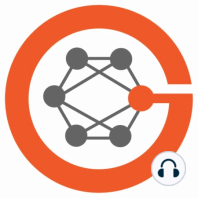41 min listen
Unavailable

ratings:
Length:
35 minutes
Released:
Mar 10, 2024
Format:
Podcast episode
Description
Transcript Eric Topol (00:06):Well, hello, this is Eric Topol with Ground Truths and I am absolutely thrilled to welcome Daphne Koller, the founder and CEO of insitro, and a person who I've been wanting to meet for some time. Finally, we converged so welcome, Daphne.Daphne Koller (00:21):Thank you Eric. And it's a pleasure to finally meet you as well.Eric Topol (00:24):Yeah, I mean you have been rocking everybody over the years with elected to the National Academy of Engineering and Science and right at the interface of life science and computer science and in my view, there's hardly anyone I can imagine who's doing so much at that interface. I wanted to first start with your meeting in Davos last month because I kind of figured we start broad AI rather than starting to get into what you're doing these days. And you had a really interesting panel [←transcript] with Yann LeCun, Andrew Ng and Kai-Fu Lee and others, and I wanted to get your impression about that and also kind of the general sense. I mean AI is just moving it at speed, that is just crazy stuff. What were your thoughts about that panel just last month, where are we?Video link for the WEF PanelDaphne Koller (01:25):I think we've been living on an exponential curve for multiple decades and the thing about exponential curves is they are very misleading things. In the early stages people basically take the line between whatever we were last year, and this year and they interpolate linearly, and they say, God, things are moving so slowly. Then as the exponential curve starts to pick up, it becomes more and more evident that things are moving faster, but it’s still people interpolate linearly and it's only when things really hit that inflection point that people realize that even with the linear interpolation where we'll be next year is just mind blowing. And if you realize that you're on that exponential curve where we will be next year is just totally unanticipatable. I think what we started to discuss in that panel was, are we in fact on an exponential curve? What are the rate limiting factors that may or may not enable that curve to continue specifically availability of data and what it would take to make that curve available in areas outside of the speech, whatever natural language, large language models that exist today and go far beyond that, which is what you would need to have these be applicable to areas such as biology and medicine.Daphne Koller (02:47):And so that was kind of the message to my mind from the panel.Eric Topol (02:53):And there was some differences in opinion, of course Yann can be a little strong and I think it was good to see that you're challenging on some things and how there is this “world view” of AI and how, I guess where we go from here. As you mentioned in the area of life science, there already had been before large language models hit stride, so much progress particularly in imaging cells, subcellular, I mean rare cells, I mean just stuff that was just without any labeling, without fluorescein, just amazing stuff. And then now it's gone into another level. So as we get into that, just before I do that, I want to ask you about this convergence story. Jensen Huang, I'm sure you heard his quote about biology as the opportunity to be engineering, not science. I'm sure if I understand, not science, but what about this convergence? Because it is quite extraordinary to see two fields coming together moving at such high velocity."Biology has the opportunity to be engineering not science. When something becomes engineering not science it becomes...exponentially improving, it can compound on the benefits of previous years." -Jensen Huang, NVIDIA.Daphne Koller (04:08):So, a quote that I will replace Jensen's or will propose a replacement for Jensen's quote, which is one that many people have articulated, is that math is to physics as machine learning is to biology. It is a mathematical foundation that allows you to take something that up until t
Released:
Mar 10, 2024
Format:
Podcast episode